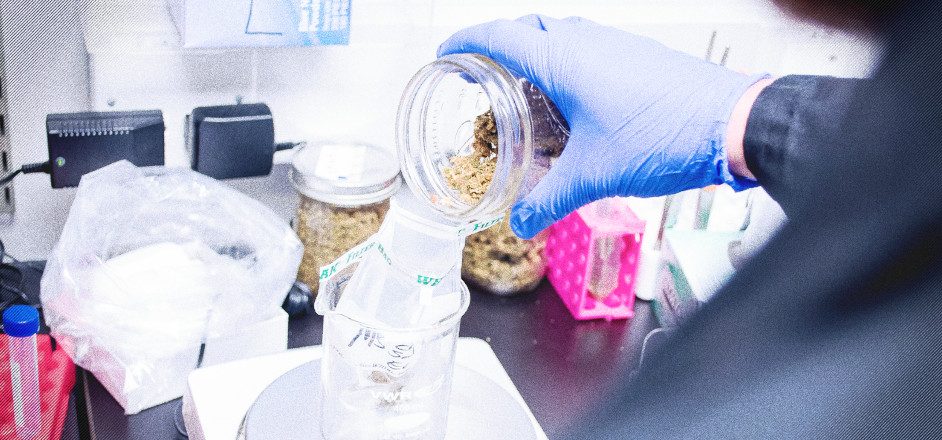Vapers can't run from Vitamin E acetate.
A Colorado lab revealed to Rooster that the substance, which has been linked to dozens of lung illnesses, occurs naturally in nearly half of weed vape pens tested, albeit in small amounts.
Vitamin E acetate has, for a long time, been added to vape cartridges, both weed and tobacco, to thicken the liquid.
AgriScience Labs said they examined a couple dozen marijuana vape pens on behalf of their manufacturers. None of the companies had added Vitamin E acetate. But the lab discovered Vitamin E acetate in nearly half the cartridges, said Frank Traylor, AgriScience CEO. Vitamin E is a part of marijuana, and it naturally converts to Vitamin E acetate.
How worrisome are these findings? The lab detected Vitamin E acetate at just about 500 parts per million — or .05 percent, Traylor said. That's around 200 times less than when Vitamin E acetate is added.
"My assumption is that these trace amounts are safe," Traylor said. "[But] we don't really know."
Millions of American vape, and the cannabis concentrates market is worth about $3 billion.

AgriScience is the oldest marijuana testing lab in Colorado. Their findings, which have not been reported elsewhere, comes at a frightening time for vapers. Over the past eight months, mysterious Vape-Related Lung Injuries have affected more than 2,000, and killed nearly 50, the CDC reported. (Vaping is almost certainly, still, safer than smoking cigarettes, which is linked to nearly half a million deaths a year.)
The CDC said it isn't sure Vitamin E acetate is the cause of the lung illnesses. A different Colorado lab theorized metal in cheap pens is degrading and being inhaled.
But a number of labs found Vitamin E acetate in the lungs of 29 sick patients.
Vitamin E is a natural oil that's safe to eat and put on your skin. There was no reason to think Vitamin E acetate wasn't safe to vape.
Today, Vitamin E acetate is being banned, and companies are advertising "additive-free" cartridges. But these new results from AgriScience show that Vitamin E isn't completely gone. Vitamin E is likely also in most nicotine vape pens, Traylor said, since it's naturally the tobacco plant, too.
This is not just a problem for nervous vapers, but vape pen companies and regulators
If many vape pens have Vitamin E acetate naturally, as AgriScience found, what level of the substance should states allow in vape pens? To set the limit of zero would be a huge headache for weed companies. They'd have to remove a naturally-occuring part of the plant.
AgriScience is working with Colorado's regulators to set a testing limit that is safe and prevents the addition of Vitamin E acetate, Traylor said.
Lots of things we eat and drink have small amounts of unhealthy impurities, Traylor noted. The government allows a low level of arsenic in our drinking water and small amounts of dead bugs in our peanut butter.
"There's a lot of science behind what harms you and what doesn't," Traylor said. But when it comes to Vitamin E acetate in vape pens, there's no clear answer about what's harmless — yet. "As far as the 500 parts per million [of Vitamin E acetate] and the harm that might cause, some of the best minds in the country are right now trying to figure that out."


Leave a Reply
You must be logged in to post a comment.